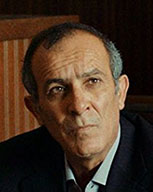Dear Colleagues,
We hope we can call you that. We feel that the people on this "Updates" email list are participating in the work of The Practicing Democracy Project. So thank you for subscribing to these updates. Thank you for completing our online survey about your hopes and fears about American democracy, your needs from the Project, and your ideas for its work. (If you haven't done the survey yet, or would like to add more comments, it is here: http://www.surveymonkey.com/r/5JWJD3T.)
Would you like to work directly with the Project, or do you know a graduate student who might? We have three fellowships available with flexible time-frames and job descriptions. You can read all about this Fellowship Opportunity here:
http://www.SpiritualityandPractice.com/Fellows
The deadline for the first three fellows is approaching. We will have three more openings in the fall. So please spread the word!
Read on for news of new content on the website.
Mary Ann Brussat, Project Director for Spirituality & Practice
Michelle Scheidt, Program Officer for the Fetzer Institute
|
 New Topic on Empathy
. New Topic on Empathy
.
Empathy is a practice that can strengthen the bonds that make for a stronger democracy. It is an antidote to racism, bullying, and conflicts of all kinds. It can precipitate the kind of understanding that leads to reforms in the justice and healthcare systems. It addresses the toxins of incivility, selfishness, and violence. This new topic section recommends articles, blogs, books, book excerpts, films, personal explorations, prayers, quotes, spiritual practices, and video clips. Here's a sampling:
Articles about research into the effects of empathy
Some fascinating research is being done in this field; it turns out the effects of empathy are not as obvious as you might think. See especially the good work described in several articles by Roman Krznaric.
Empathy Quiz
In the "Personal Explorations" section, we provide a link to an Empathy Quiz created by the Greater Good Science Center. Answer 28 questions and get your score along with an explanation about what it means and how you can improve your empathy practice.
Using Art to Build Empathy
Read about a fascinating new project at the Minnesota Institute of Art designed to nurture empathy through the visual arts.
Walk in Another's Shoes through Films
Have you considered using war movies, films about children in Iran, or photographs of Iraqi children to build your capacity to empathize with another's situation? We have recommended films, a gallery, and a process for that practice. Here are some other films you could use:
*
The Other Son is about a Jew and a Palestinian who were born in the same hospital but sent home with the wrong parents. This uplifting drama charts the miracles that can happen when we walk a mile in another person's shoes and truly desire to understand the broader context of his/her life. The film also tutors us in the art of listening.
*
The Kid with a Bike offers a poignant salute to empathy and the need to cultivate it in our approach to troubled kids on the fringe of society.
*
The Journey shows how empathy and dialogue enables two politicians to move beyond their differences and forge a peace in Ireland.
Spiritual Practices
Bradford Keeney is a very creative spiritual practitioner. To practice empathy, he suggests you pray as if you were a member of
an endangered species,
see with your heart, and
swap your worries with someone else's.
|
 Foreign Language Film: The Insult
Foreign Language Film: The Insult
Just being released in the U.S. and short-listed for the Best Foreign Language Film Oscar nominations, this Lebanese film reveals the consequences of hateful speech. An argument over a terrace drain pipe leads to insults being hurled between a Lebanese Christian and a Palestinian refugee. The resulting court case reveals how language can create "extreme distress" -- something for all of us to keep in mind as we talk to people with different views from our own.
|
 Dr. Martin Luther King, Jr., Day
Dr. Martin Luther King, Jr., Day
In The Future of Peace, Scott A. Hunt writes: "Even in the darkest times in our history, people of extraordinary character have lived among us, showing us a way out of the deplorable cycle of hatred and aggression. They exist this very day. It is to these people that we can turn in order to replenish our encouragement, hope, and inspiration. ... They are heirs of our great spiritual masters from centuries past, continuing now to challenge us to think and act differently, to live more productively and harmoniously."
We are working on a new section of The Practicing Democracy Project website that will lift up some of these leaders as "Democracy Mentors." Dr. Martin Luther King, Jr., was one of them. Our "Naming the Days" feature highlights quotations from his sermons and speeches and three of his prayers.
|
The Practicing Democracy Project is a collaboration between The Center for Spirituality & Practice and the Fetzer Institute. Seek more at PracticingDemocracy.net
|
|
|
|
|